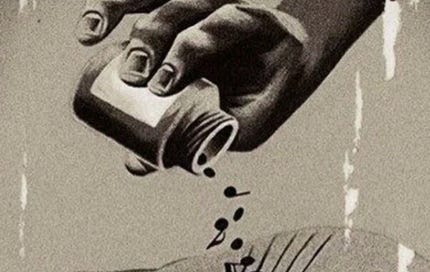Is music a drug? To answer this question we must first define "drug." According to the 5th edition of the American Heritage Dictionary, a drug is a substance used in the diagnosis, treatment, or prevention of a disease or as a component of a medication.
So apparently a drug has to be a 'substance.' Is music a 'substance'? Well, what is a 'substance'?…
Keep reading with a 7-day free trial
Subscribe to Temple of Artists to keep reading this post and get 7 days of free access to the full post archives.




